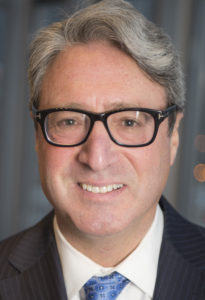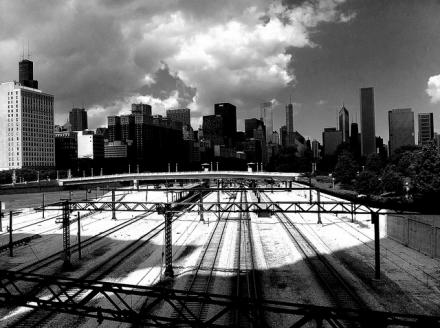
We sometimes describe Henry George’s fiscal proposal as a “smart tax,” unlike the inefficient anti-prosperity taxes that fund most government programs today. Similarly, there can be “smart” transit facilities, which are distinguished from dumb ones because they are cost less and provide more service. Perhaps the most prominent recent smart transit proposal is the CTA Gray Line, whose creator, Mike Payne, will be our speaker tonight.
From the CTA Gray Line web page:
Launching the Gray Line would provide a brand new CTA Rapid Transit (‘L’) service (on EXISTING facilities) to Grant Park, the Museum Campus, the newly renovated Soldier Field, and McCormick Place (with a connected station under the McCormick Place South Bldg.)
Also service to Bronzeville, Hyde Park, the Museum of Science & Industry (with an ADA compliant station 1 1/2 blocks away), the University of Chicago, Woodlawn, South Shore, South Chicago, Chatham, Chicago State University, Pullman, Roseland, Blue Island, and Hegewisch; again almost all Gray Line facilities are in place, and operating RIGHT NOW TODAY.
. . .
There is N O need for costly and time consuming design and engineering, right-of-way acquistion, condemnation, demolition, clearing, materials acquisition, delivery, and major construction; the CTA Gray Line ‘L’ System could be up and providing CTA ‘L’ service to the Far South Side WITHIN O N E YEAR, rather than waiting until 2016 for completion of the Red Line Extension.
Come to this free presentation to meet and question a prominent transit activist, and think about what could be done with all the public money saved by smart projects like the CTA Gray Line.
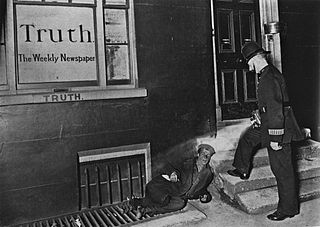
The People of the Abyss (1903) is a book by Jack London (1876-1916) about life in the East End of London in 1902. He wrote this first-hand account by living in the East End for several months, sometimes staying in workhouses or sleeping on the streets. The conditions he experienced and wrote about were the same as those endured by an estimated 500,000 of the contemporary London poor. Decades later, this book inspired George Orwell to write Down and Out in Paris and London.
A bit late to be a contemporary of Henry George, Jack London lived mainly in northern California and was a passionate advocate of workers’ rights. Both London and George were members of Bohemian Grove.
(source: Wikipedia)
The People of the Abyss is available free on line as text from Gutenberg, and as an audiobook from LibriVox, as well as in hardcopy from various libraries and book dealers.
Political Economy Book Club is open to everyone wishing to participate in the discussion, without charge altho donations are appreciated to help pay for rent and snacks. Convenor Bob Matter appreciates an RSVP from those planning to attend.
Recent books by Scott Baker and Tom Tresser (ed) assert that America is not Broke and Chicago is not Broke. They’re right, of course, and neither is Illinois. Using principles outlined by Henry George, this presentation will show how the community could choose to collect the value it creates, funding its needs without discouraging productive work.
Recent books by Scott Baker and Tom Tresser (ed) assert that America is not Broke and Chicago is not Broke. They’re right, of course, and neither is Illinois. Using principles outlined by Henry George, this presentation will show how the community could choose to collect the value it creates, funding its needs without discouraging productive work, and without burdening the earning power of the most needy.
This is an update of material originally presented in May of this year. While subsequent developments have transferred some of the economic distress from governments to citizens, there is no indication that the politicians or other interest groups involved admit any understanding of the fundamental economic principles described here.
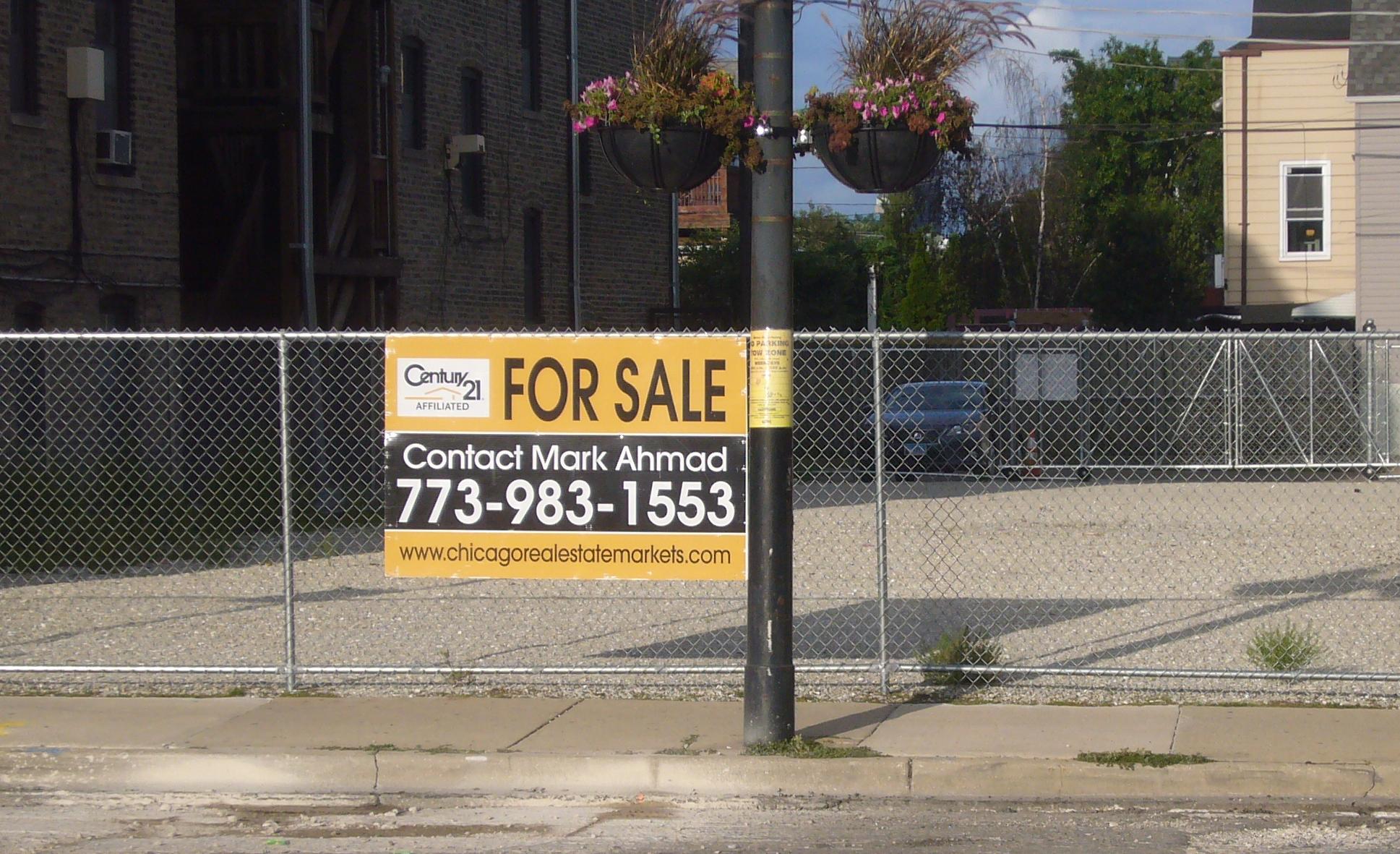
Recent books by Scott Baker and Tom Tresser (ed) assert that America is not Broke and Chicago is not Broke. They’re right, of course, and neither is Illinois. Using principles outlined by Henry George, this presentation will show how the community fails to collect its legitimate earnings, instead placing barriers against productive work and making it unnecessarily difficult for working people to earn a living.
This is an update of material originally presented in May of this year. While subsequent developments have transferred some of the economic distress from governments to citizens, there is no indication that the politicians or other interest groups involved admit any understanding of the fundamental economic principles described here. Without this understanding, even honest government couldn’t put Illinois on a path to prosperity and freedom.
This Henry George School presentation is sponsored by the Chicago Ethical Humanist Circle, is free and open to the public. The Library is three blocks from the Western Brown Line CTA station.
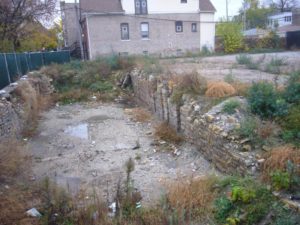
Cook County isn’t broke either. Neither is Chicago.
In this session you will learn about the legitimate earnings that our communities generate every day, and how collecting these earnings would allow removal of barriers to productive work which make it unnecessarily difficult for working people to earn a living.
There’s plenty of waste and fraud throughout government, but that’s not the focus here. Even an honest and efficient government requires revenue, and the source of that revenue determines whether we can have prosperity and freedom, or — something else.
PREREGISTRATION MANDATORY. This program is free, but due to building policies you must pre-register by email or by phoning us at 312 450-2906.

Cook County isn’t broke either. Neither is Chicago.
In this session you will learn about the legitimate earnings that our communities generate every day, and how collecting these earnings would allow removal of barriers to productive work which make it unnecessarily difficult for working people to earn a living.
There’s plenty of waste and fraud throughout government, but that’s not the focus here. Even an honest and efficient government requires revenue, and the source of that revenue determines whether we can have prosperity and freedom, or — something else.
PREREGISTRATION MANDATORY. This program is free, but due to building policies you must pre-register by email or by phoning us at 312 450-2906.
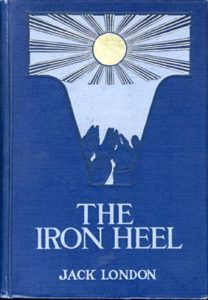 Bob Matter’s Political Economy Book Club is reading Jack London’s dystopian novel The Iron Heel. On June 25 we’ll discuss chapters 1-13, and on July 23 chapters 14-25. This 1908 text is available free from Project Gutenberg, in hardcopy from some public libraries, or as an audiobook. You can buy used hardcopies for < $10 from several vendors.
Bob Matter’s Political Economy Book Club is reading Jack London’s dystopian novel The Iron Heel. On June 25 we’ll discuss chapters 1-13, and on July 23 chapters 14-25. This 1908 text is available free from Project Gutenberg, in hardcopy from some public libraries, or as an audiobook. You can buy used hardcopies for < $10 from several vendors.
We’ll meet at the East Loop location of Bridgeport Coffeehouse, 73 E Jackson Blvd.
 Bob Matter’s Political Economy Book Club concludes its discussion of Jack London’s dystopian novel The Iron Heel. On July 23 we treat chapters 14-25.
Bob Matter’s Political Economy Book Club concludes its discussion of Jack London’s dystopian novel The Iron Heel. On July 23 we treat chapters 14-25.
We’ll meet at the east loop location of Bridgeport Coffee, 73 E Jackson.

